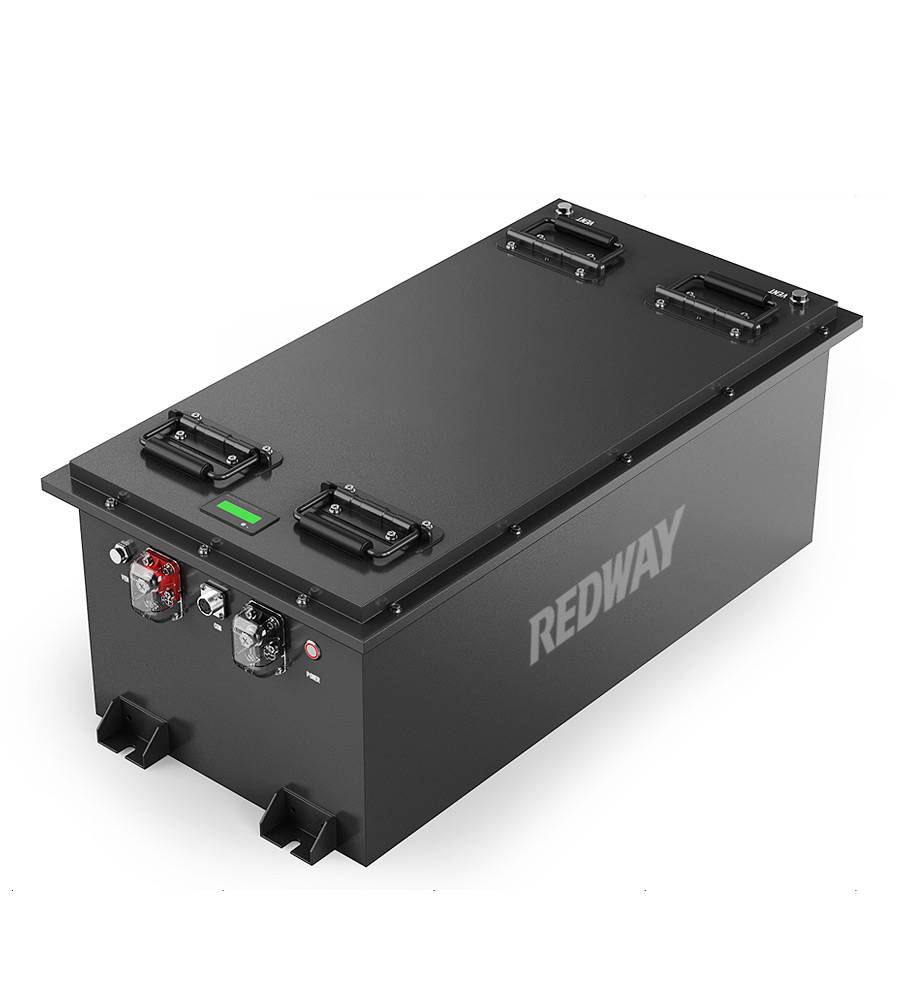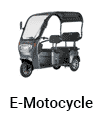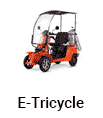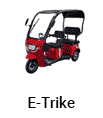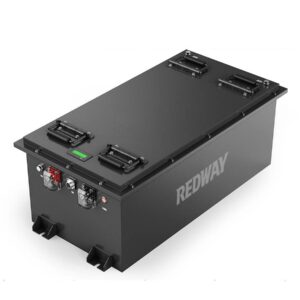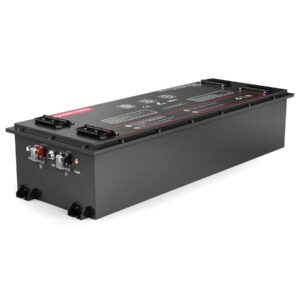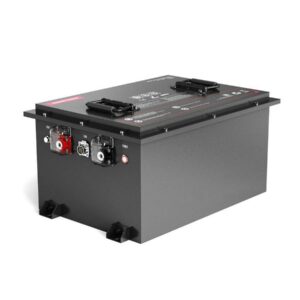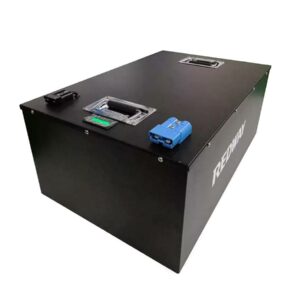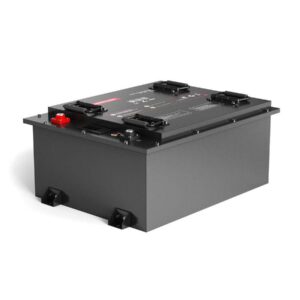Description
The 72V 180Ah LiFePO4 Golf Cart Battery is an advanced energy solution specifically designed for high-performance electric vehicles, particularly golf carts. Manufactured by a leading factory in China, this lithium iron phosphate (LiFePO4) battery offers exceptional power and longevity, making it ideal for OEM, ODM, and wholesale buyers seeking reliable energy storage solutions.
Key Features
- High Energy Output: Delivers a nominal capacity of 180Ah with an energy output of 13.82kWh, ensuring extended operational time for various electric vehicles.
- Long Cycle Life: Engineered to last over 6000 cycles at 80% Depth of Discharge (DoD), significantly reducing long-term replacement costs compared to traditional batteries.
- Advanced Battery Management System (BMS): Equipped with a smart BMS that protects against overcharging, overheating, and short circuits, ensuring safe operation in various conditions.
- Robust Construction: With dimensions of 760mm x 300mm x 220mm and a weight of approximately 48 kg, this battery is designed for durability, making it suitable for outdoor use with an IP65 rating.
- Versatile Applications: Ideal for a wide range of electric vehicles including golf carts, electric rickshaws, and scooters, providing flexibility across multiple platforms.
Product Description
- The 72V 180Ah LiFePO4 Golf Cart Battery is meticulously crafted to meet the power demands of modern electric vehicles. Utilizing advanced LiFePO4 technology, this battery operates at a nominal voltage of 72V, delivering an impressive capacity of 180Ah, which translates to substantial energy output.
- Key specifications include:
- Nominal Voltage: 72V
- Energy Output: 13.82kWh
- Dimensions: Approximately 760mm x 300mm x 220mm
- Weight: Approximately 48 kg
- Operating Temperature Range: Charging from 0°C to 45°C; Discharging from -20°C to 60°C
- This battery supports a maximum continuous discharge current of up to 180A, making it suitable for high-demand applications while maintaining safety through its intelligent BMS. The BMS continuously monitors critical parameters such as State of Charge (SOC), voltage, current, and temperature to ensure safe operation throughout its lifespan.
- The 72V 180Ah LiFePO4 Golf Cart Battery boasts an impressive cycle life of over 6000 cycles at 80% DoD, significantly reducing the need for replacements and lowering overall operating costs. Its robust construction ensures reliability in both indoor and outdoor environments.
- With an IP65 rating, the battery is protected against dust and water ingress, making it suitable for challenging environments. Additionally, it performs well in extreme temperatures, ensuring reliability across various working conditions.
- For seamless integration into fleet management systems, the battery supports communication protocols such as RS485 and CAN-bus. This enables remote monitoring and efficient management, providing real-time insights into battery health and performance.
- Investing in the 72V 180Ah LiFePO4 Golf Cart Battery not only provides a reliable power source but also supports sustainability efforts with its long lifespan and eco-friendly design. Choose our battery for an efficient, powerful solution tailored to your energy storage needs.
- As a reputable Chinese manufacturer specializing in OEM and wholesale solutions, we prioritize customer satisfaction and strive to meet the diverse needs of our clients globally. Our state-of-the-art production processes ensure that each battery meets rigorous safety and performance standards.
Contact us today to explore customization options that can meet your specific requirements!
Battery Specifications
What are the key specifications of 72V 180Ah LiFePO4 batteries?
72V 180Ah LiFePO4 batteries typically deliver 12.96 kWh of energy with over 3,000–5,000 cycles. They support up to 200A continuous discharge, include a smart BMS, and offer consistent voltage. These batteries provide high energy density and low maintenance, making them ideal for golf carts, energy storage, and electric vehicles.
Are 72V 180Ah LiFePO4 batteries suitable for other applications?
Yes, these batteries are suitable for electric scooters, marine systems, solar storage, and industrial vehicles. Their high capacity, long cycle life, and built-in safety features make them reliable for demanding applications requiring stable and long-lasting power.
What charging time is required for 72V 180Ah LiFePO4 batteries?
Charging time varies by charger output. A 30A charger takes about 6–7 hours, while a 50A charger may take just 3–4 hours. LiFePO4 batteries support fast charging and include BMS protection, allowing safe and efficient energy replenishment.
What safety features do LiFePO4 golf cart batteries offer?
LiFePO4 batteries include overcharge protection, short-circuit prevention, temperature monitoring, and a built-in Battery Management System (BMS). The LiFePO4 chemistry itself is thermally stable and non-combustible, making it one of the safest lithium battery types for golf carts.
What are advantages of 180Ah lithium golf cart batteries?
180Ah lithium batteries offer longer runtime, faster charging, reduced weight, and over 3,000 cycles. They require no maintenance, provide consistent power output, and are more environmentally friendly than lead-acid alternatives. These features result in better hill performance and longer driving range.
Are 180Ah lithium batteries compatible with all golf carts?
Most modern golf carts are compatible, especially if the system supports 72V lithium. Some carts may need a lithium-compatible charger or controller adjustment. Always verify dimensions and voltage before installation, and consider plug-and-play kits for easier upgrades.
What safety features do custom 180Ah lithium batteries include?
Custom 180Ah lithium batteries feature smart BMS, thermal sensors, short-circuit protection, and often CAN/RS485 communication. Many also include shockproof and water-resistant enclosures for rugged environments. These safeguards ensure stable, safe operation across diverse electric vehicle and energy storage uses.
Battery Performance
How does voltage affect golf cart battery performance?
Higher voltage improves torque, speed, and energy efficiency. A 72V system draws less current than lower-voltage batteries, reducing heat and stress on components. This results in better performance on hills and longer range, especially for heavier golf carts or high-demand applications.
What is the typical lifespan of a 72V 180Ah LiFePO4 battery?
A 72V 180Ah LiFePO4 battery typically lasts 8–10 years or up to 5,000 cycles. Its long cycle life is due to the stable LiFePO4 chemistry, which resists degradation. Proper use and charging help maintain capacity over time, making it a reliable long-term option.
How does 180Ah lithium battery lifespan compare to lead-acid?
Lithium batteries last 6–10 times longer than lead-acid. A typical 180Ah LiFePO4 battery can exceed 3,000 cycles, while lead-acid options average around 500. This extended lifespan reduces replacement costs and maintenance over time, offering better overall value.
How does temperature affect 180Ah lithium battery performance?
Extreme temperatures impact lithium battery performance. Cold weather can reduce capacity, while high heat shortens lifespan. Most 180Ah batteries perform best between 0°C and 45°C. Some models include built-in heating systems to support charging in cold environments.
Are 72V lithium batteries faster charging than others?
Yes, lithium batteries charge significantly faster than lead-acid. A 72V lithium battery can fully recharge in 3–6 hours, depending on the charger. In contrast, lead-acid batteries may take 8–10 hours due to slower absorption phases.
What charging habits extend 72V battery life?
To extend battery life, avoid full discharges and overcharging. Keep the charge level between 20% and 80%, and use a proper lithium charger. Store the battery in a cool, dry place when not in use, and avoid exposing it to extreme temperatures.
How to maintain 72V golf cart battery lifespan?
Regular maintenance includes proper charging, keeping terminals clean, and monitoring the battery management system (BMS). Avoid deep discharges, check voltage monthly, and ensure storage in moderate temperatures. These habits help preserve capacity and extend overall battery life.
Buying & Brands
What are top 72V lithium golf cart battery brands?
Top brands include RoyPow, Allied Battery, RELiON, and Eco Battery. These companies are known for producing reliable and long-lasting lithium batteries with built-in BMS and extended warranties. Choosing a reputable brand ensures better safety, performance, and customer support for golf cart applications.
Where to buy affordable 72V lithium golf cart batteries?
Affordable 72V lithium batteries are available on Alibaba, Amazon, and from OEM suppliers in China. Buying directly from manufacturers can reduce costs, especially for bulk orders. Always compare specs and check for certifications to ensure quality and reliability.
Do 72V lithium batteries offer extended warranty options?
Yes, many 72V lithium batteries come with 3–10 year warranties, depending on the brand. Extended warranties often cover defects and performance loss. Choosing a battery from a reputable company increases your chances of receiving reliable coverage and long-term support.
OEM Pricing
What factors influence 72V LiFePO4 OEM battery pricing?
Several factors affect 72V LiFePO4 battery pricing, including raw material costs, battery capacity, and the complexity of the Battery Management System (BMS). Customization, order volume, and certifications like UL or CE also play a role in determining the final cost. Larger bulk orders typically come with discounted pricing.
How do 72V LiFePO4 battery prices compare across manufacturers?
Prices for 72V LiFePO4 batteries vary by manufacturer due to differences in battery quality, cell type, and added features like smart BMS or warranty terms. Chinese manufacturers generally offer lower-priced options, while U.S. or European brands may have higher prices due to certifications, support, and more premium features.
What customization options affect 72V LiFePO4 battery costs?
Customization options such as capacity, enclosure design, communication protocols (CAN/RS485), and temperature protection can increase costs. The more specialized the battery, the higher the price. Features like Bluetooth monitoring or fast-charging capabilities also contribute to higher custom pricing.
How do market trends affect 72V LiFePO4 battery costs in China?
Market trends, such as lithium supply shortages or increasing demand for electric vehicles (EVs), can cause fluctuations in pricing. Higher raw material costs and government policies on exports also affect OEM prices. When demand is high, suppliers may raise prices to manage limited resources.
What are typical MOQs for 72V LiFePO4 OEM batteries?
Minimum Order Quantities (MOQs) for 72V LiFePO4 batteries typically range from 10 to 50 units, depending on the supplier. Custom configurations may require higher MOQs, while some manufacturers offer sample units with higher pricing per unit for first-time buyers or small orders.
How do certifications impact 72V LiFePO4 battery pricing strategies?
Certifications like UL, CE, and UN38.3 certification increase battery costs due to testing and compliance procedures. Certified batteries offer greater reliability and safety, which is important for customers in regulated industries. Prices are generally higher for batteries with internationally recognized certifications.
Battery Comparison
How do 72V lithium batteries compare to lead-acid?
72V lithium batteries offer longer lifespan, faster charging, and higher efficiency than lead-acid batteries. While lead-acid batteries are more affordable upfront, lithium batteries are lighter, require less maintenance, and provide better performance over time, making them a more cost-effective long-term investment.
Lifespan comparison: LiFePO4 vs lead acid batteries?
LiFePO4 batteries last 6–10 times longer than lead-acid batteries. While lead-acid typically lasts around 300–500 cycles, LiFePO4 batteries can provide 3,000–5,000 cycles. This significant lifespan difference makes lithium batteries a more economical option for long-term use, especially in golf carts.
Cost differences between LiFePO4 and lead acid?
LiFePO4 batteries have a higher initial cost than lead-acid, but they are more cost-effective over time due to their longer lifespan and lower maintenance needs. Lead-acid batteries are cheaper upfront but require frequent replacements and incur higher maintenance costs, making lithium a better long-term investment.
Weight impact on golf cart performance comparison?
LiFePO4 batteries are significantly lighter than lead-acid batteries, improving golf cart speed and acceleration. The reduced weight also enhances range and minimizes strain on the motor, providing better performance on steep inclines and improving overall energy efficiency.
Charging efficiency: LiFePO4 vs lead acid batteries?
LiFePO4 batteries charge faster and more efficiently than lead-acid batteries. A typical lithium battery can charge fully in 3–6 hours, while lead-acid batteries may take 8–10 hours due to slower charging cycles. Lithium’s higher efficiency results in less energy wasted during charging.
Maintenance requirements comparison for both battery types?
LiFePO4 batteries require minimal maintenance, mainly periodic cleaning and voltage checks. In contrast, lead-acid batteries need regular water refills, equalization charges, and corrosion monitoring, making lithium batteries a more convenient and low-maintenance option for golf carts and electric vehicles.
Environmental impact differences between LiFePO4 and lead acid?
LiFePO4 batteries are more environmentally friendly than lead-acid because they don’t contain toxic materials like lead or sulfuric acid. They are also more energy-efficient, with longer lifespans, leading to fewer replacements and less waste. Lead-acid batteries pose disposal challenges due to the lead content, making lithium a greener choice.
Battery Maintenance
What maintenance do custom 180Ah lithium batteries require?
Custom 180Ah lithium batteries require minimal maintenance. Regular tasks include checking voltage levels, ensuring terminals are clean, and inspecting the BMS for proper function. Lithium batteries don’t need water refills or equalization charging like lead-acid batteries, making maintenance simple and low-cost.
How often check 72V golf cart battery voltage?
Check 72V golf cart battery voltage monthly or after long periods of use. Monitoring voltage helps ensure the battery stays within safe operational limits and prevents deep discharges or overcharging, which can reduce battery life. Many lithium batteries include built-in monitoring through the BMS.
Best methods for cleaning 72V golf cart batteries?
To clean a 72V battery, turn off the system and remove the battery terminals. Use a mild soap solution and a soft cloth to wipe down the battery case. For corrosion, use a baking soda paste on the terminals. Always ensure the battery is dry before reconnecting the system.
How to store 72V batteries during offseason?
For offseason storage, charge the 72V lithium battery to about 50% and keep it in a cool, dry place. Avoid extreme temperatures and check the battery every 2–3 months to ensure it maintains charge. Storing batteries at moderate charge levels prevents damage and helps maintain long-term performance.
Why monitor electrolyte levels in 72V batteries?
Monitoring electrolyte levels is crucial for lead-acid batteries, not lithium ones. LiFePO4 batteries are sealed and require no electrolyte maintenance. Lead-acid batteries need regular water top-ups to prevent sulfation and maintain performance. Switching to lithium eliminates this maintenance task and ensures greater reliability.
Recommended maintenance schedule for 72V batteries?
For 72V lithium batteries, check voltage monthly, inspect the BMS for errors, and clean the terminals every 2–3 months. Avoid deep discharges and store in moderate temperatures. For lead-acid batteries, perform equalization charges and check water levels every month. Regular maintenance extends both battery life and performance.

